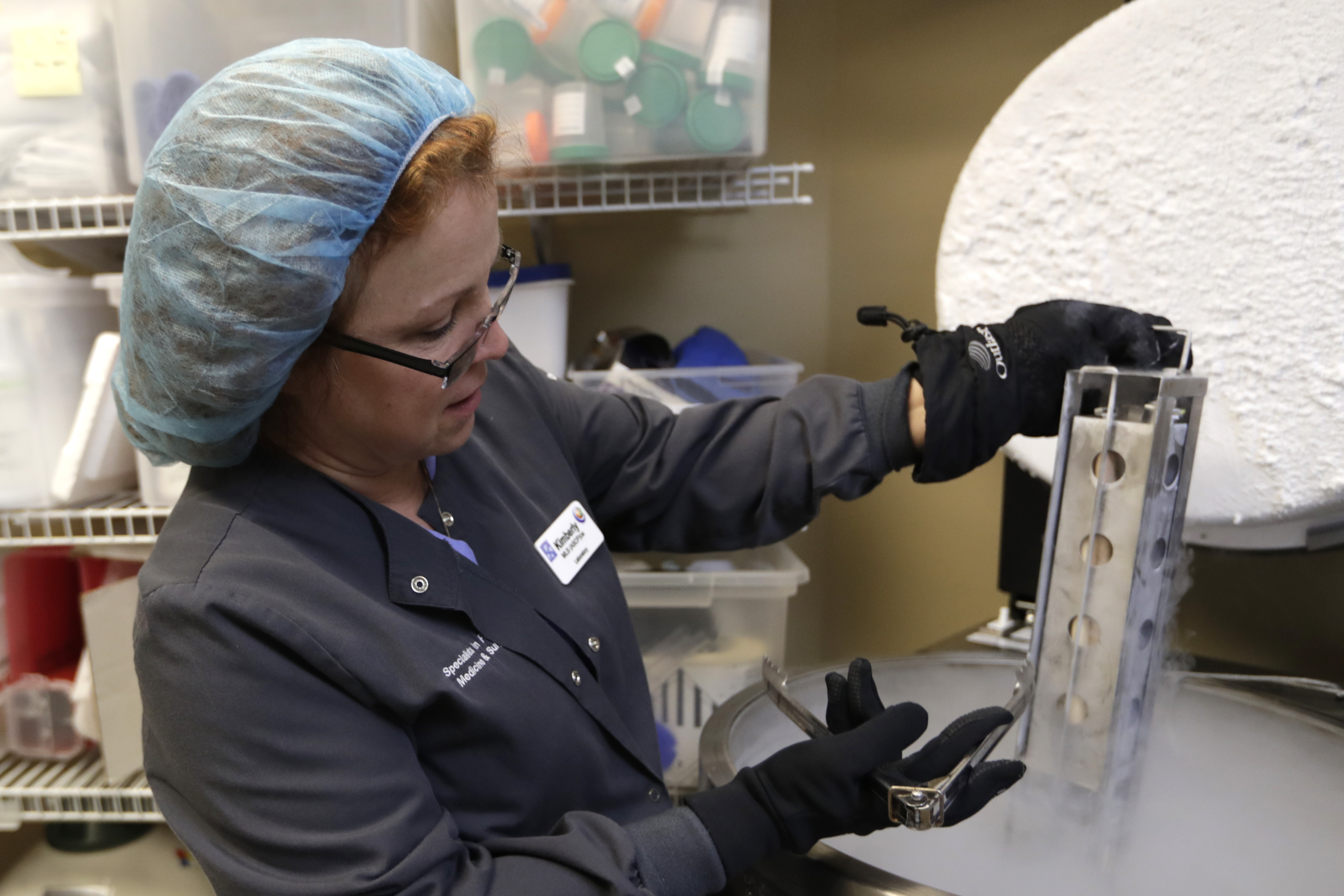Republicans have an answer on IVF. It’s only raising more questions.

The struggle to address the details underscores the complex ethical quandaries surrounding the practice, which in the U.S. typically involves creating multiple embryos, implanting those with the highest chance of success and discarding or storing the rest.
Many conservatives are torn between their desire to help parents deal with infertility and their belief in fetal personhood, and have struggled over the last week to articulate exactly which laws and policies should govern this fraught area of health care.
Here are follow-up questions for politicians professing support for IVF:
Do you agree with the Alabama ruling, which has led hospitals across the state to cease all IVF services?
The Alabama Supreme Court ruling was an unexpected bombshell — a civil suit about the accidental destruction of embryos under the state’s “wrongful death” law that the all-Republican court used to declare that embryos have full legal personhood whether they’re frozen in a clinic or implanted in a uterus. Since then, at least three major clinics in the state have suspended all IVF services, leaving families pursuing costly treatments in limbo.
Many conservatives rushed to praise the judges’ ruling but later acknowledged they were not aware of its implications.
Former South Carolina Gov. Nikki Haley said “embryos … are babies” but later clarified that she didn’t mean she agreed with the Alabama court’s ruling.
Alabama Republican Sen. Tommy Tuberville initially
told reporters he was “all for” the decision, calling it “the right thing to do.” But when informed the ruling had effectively cut off IVF for his constituents, he said it was “unfortunate” and “hard.”
Many other members of Congress have voiced support for IVF despite co-sponsoring fetal personhood bills similar to the language in the Alabama state constitution on which the court relied in its IVF ruling.
Are embryos people even if they are not implanted in the uterus?
This is the question at the heart of the Alabama case. There is broad agreement in anti-abortion circles that embryos conceived naturally should be considered life. The same consensus does not exist for embryos created in a lab that haven’t been implanted into a uterus.
Conservative states that have adopted so-called fetal personhood laws illustrate these diverging views. A
Missouri law passed nearly four decades ago grants rights to “unborn children,” which it defines as “the offspring of human beings from the moment of conception.”
Georgia’s version defines “unborn children” more narrowly as “Homo sapiens at any stage of development” who are “carried in the womb.”
These varying fetal personhood laws raise questions about child support, taxes and the legality of certain forms of contraception that work by preventing implantation, not fertilization.
Should people be allowed to fertilize more embryos than they plan to implant? If so, what should happen with unused embryos?
Fertility specialists aim to create several viable embryos during the IVF process to give the best chance of a successful pregnancy.
Research conducted by Reproductive Medicine Associates has found that three viable embryos results in a 95 percent chance of a successful pregnancy, compared with a 65 percent success rate with one embryo.
A person hoping for one child may end up with extra viable embryos. Some people choose to keep those embryos frozen, should they later decide to have another child. Others choose to discard the embryos or donate them to research, two options some in the anti-abortion movement view as tantamount to abortion.
Only one state, Louisiana, prohibits viable embryos from being discarded. Several states, however, already bar embryos from being used for medical research.
Some in the anti-abortion movement advocate for adopting embryos to other families struggling to conceive as the best solution.
Should people be allowed to genetically test embryos — for instance, to screen for certain diseases — to decide which they want to implant?
Many undergoing IVF opt for preimplantation genetic testing to screen fertilized embryos for hundreds of diseases and conditions — including cystic fibrosis, sickle cell disease and Tay-Sachs. Some people want these tests to avoid passing a genetic condition to their children; others do it to lower their risk of miscarriage. Critics — including
some anti-abortion activists — view it as a form of eugenics that should be banned, warning of a dystopian future where parents will select embryos based on gender, appearance and intelligence as well as disease risk.
What should be done with the million or more embryos that are cryopreserved?
No one knows how many embryos are in cold storage, but
several estimates put the figure above 1 million.
A ruling barring clinics from discarding the fertilized embryos that are not implanted raises questions about their fate including who would be responsible for paying for storage, or whether they could be frozen in perpetuity.